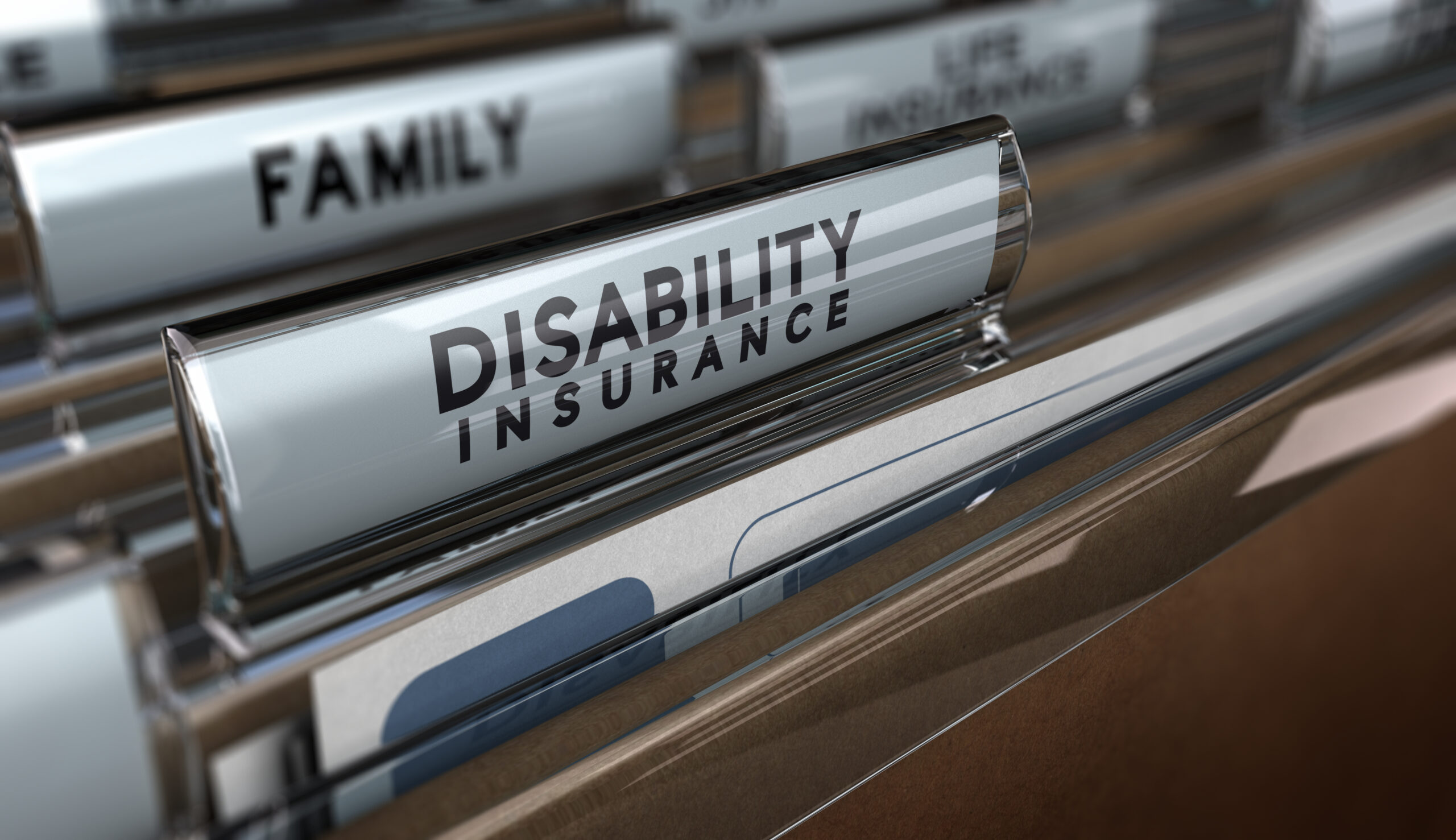Disability insurance pays benefits when you are unable to earn a living because you are sick or injured. Most disability policies pay you a benefit that replaces a percentage of your earned income when you can’t work.
Why would you need disability insurance?
Your chances of being disabled for longer than three months are much greater than your chances of dying prematurely, due in part to medicine that has made many fatal illnesses treatable. (Source: 1985 Commissioner’s Individual Disability Table A–most recent data available.) Although this is good news, it increases your need to protect your income with disability insurance.
Consider what might happen if you suffered an injury or illness and couldn’t work for days, months, or even years. If you’re single, do you have other means of support? If you’re married, you may be able to rely on your spouse for income, but you probably also have many financial obligations, such as supporting your children and paying your mortgage. Could your spouse’s income support your whole family? In addition, remember that you don’t have to be working in a hazardous position to need disability insurance. Accidents happen not only on the job but also at home, and illness can strike anyone.
If you own a business, disability insurance can help protect you in several ways. First, you can purchase an individual policy that will protect your own income. You can also purchase key person insurance designed to protect you from the impact that losing an important employee would have on your business. Finally, you can purchase a disability insurance policy that will enable you to buy your partner’s business interest in the event that he or she becomes disabled.
What do you need to know about disability insurance?
Once you become disabled and apply for benefits, you have to wait for a certain amount of time after the onset of your disability before you receive benefits. If you are applying for benefits under a private insurance policy, this amount of time (known as the elimination period) ranges from 30 to 365 days, although the most common period is 90 days. Group insurance policies through your employer will generally have a waiting period of no more than 8 days for short-term policies that pay benefits for up to six months, and 90 days for long-term policies that pay benefits up to age 65.
You can purchase private disability income insurance policies that offer lifetime coverage, but they are very expensive. Most people buy policies that pay benefits up until age 65; however, two- and five-year benefit periods are also available. Because many injuries or illnesses do not totally disable you, many policies will offer a rider that will pay you a partial benefit if you can work part time and earn some income.
Where can you get disability insurance?
In general, disability insurance can be split into two types: private insurance (individual or group policies purchased from an insurance company), and government insurance (social insurance provided through state or federal governments).
Private disability insurance refers to disability insurance that you purchase through an insurance company. Many types of private disability insurance exist, including individual disability income policies, group policies, group association policies, and riders attached to life insurance policies. Depending on the type of policy chosen, private disability policies usually offer more comprehensive benefits to insured individuals than social insurance. Individually owned disability income policies may offer the most coverage (at a greater cost), followed by group policies offered by an employer or association. Check with your employer or professional association to see if you are eligible to participate in a group plan. If not, contact your insurance broker to look into individual coverage.
Workers’ compensation and Social Security are two well-known government disability insurance programs. In addition, five states (California, Hawaii, New Jersey, New York, and Rhode Island) have mandatory disability insurance programs that provide disability benefits to residents. If you are a civil service worker, a military servicemember, or other federal, state, or local government employee, many disability programs are set up to benefit you. In general, however, government disability insurance programs are designed to provide limited benefits under restrictive terms, and you should not rely on them (as many people mistakenly do) as your main source of income if you are disabled.
Prepared by Broadridge Advisor Solutions. © 2025 Broadridge Financial Services, Inc.
The articles and opinions expressed in this document were gathered from a variety of sources, but are reviewed by Strickland Financial Group, LLC prior to its dissemination. Any articles written by Graham M. Strickland or Strickland Financial Group will include a ‘by line’ indicating the author. Strickland Financial Group provides a full range of financial services, including but not limited to: life, health, disability and long term care insurance, group and individual retirement plans and individual investments. Receipt of literature in no way implies suitability of product(s) in your financial plan. Strickland Financial Group maintains networking relationships with estate planning attorneys and tax professionals but does not itself offer legal or tax advice. Securities offered through Osaic Wealth Inc., Member FINRA/SIPC. Advisory services offered through S&S Wealth Management, LP (S&S). A Registered Investment Advisor. Osaic Wealth is separately owned and other entities and/or marketing names, products or services referenced here are independent of Osaic Wealth. Strickland Financial Group is not affiliated with S&S Wealth Management, LP.
This communication is strictly intended for individuals residing in the state(s) of TX, NE, OK and FL. No offers may be made or accepted from any resident outside the specific states referenced.

